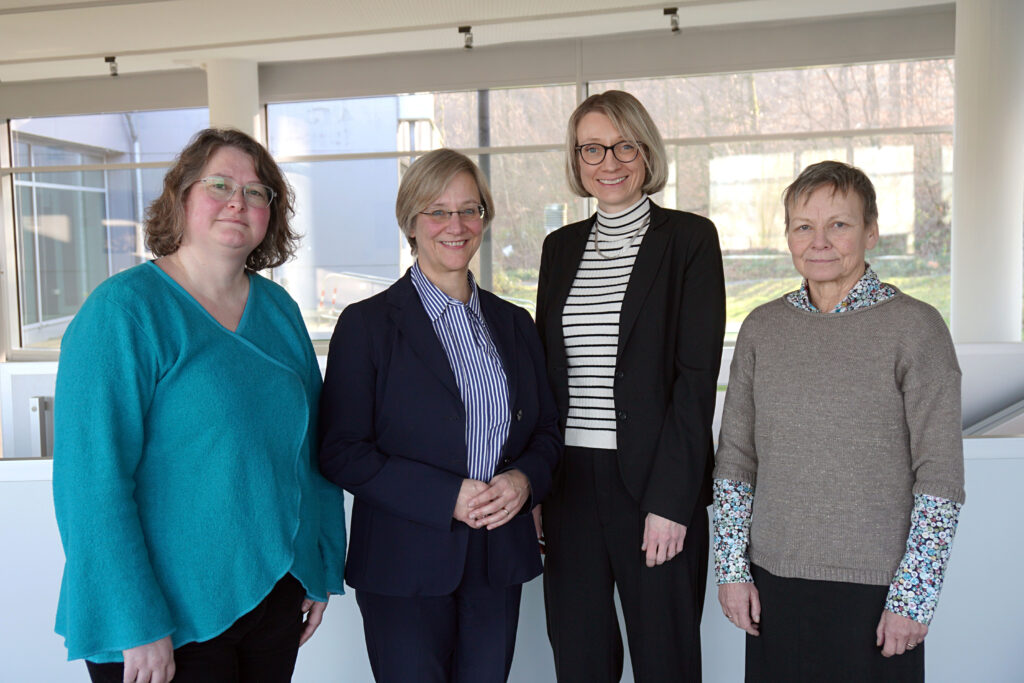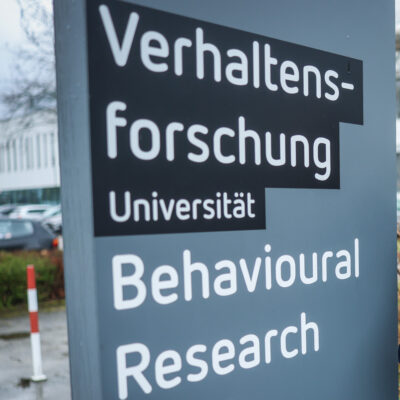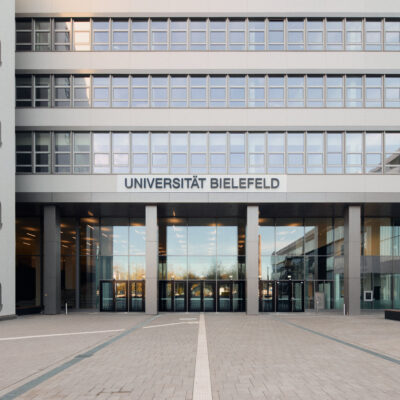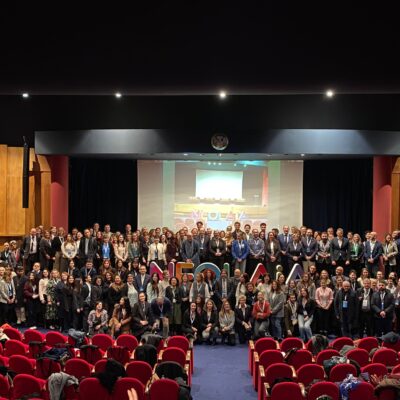On 13 December 2024, Bielefeld University’s Electoral Committee unanimously chose Professor Dr Michaela Vogt to be a new member of the rectorate. She succeeds Professor Dr Alexandra Kaasch, who stepped down from her position as vice-rector for personal reasons. The personnel change is accompanied by reorganization and a new title for the vice-rectorate.
The election transforms the former vice-Rectorate for Science and Society into the vice-Rectorate for International Affairs, Diversity, and Society. It combines addressing diversity – in the form of, for example, participation, inclusion, and equality – with networking the university with international partners and social actors in the region.

©
Dr Michaela Vogt (41) has been Professor of Inclusive Education at Bielefeld University’s Faculty of Education since 2017. Her work focuses on international comparative education and school research as well as inclusion and exclusion in schools, education, and society. Up to now, her academic career has taken her to the University of Würzburg, Freiburg University of Education, Ludwigsburg University of Education, and Canterbury University in Christchurch (New Zealand). Starting in 2022, Michaela Vogt was the rectorate representative for International Networking and the European University NEOLAiA at Bielefeld University. Together with eight other European partner universities, Bielefeld University forms the European University NEOLAiA. Michaela Vogt is also active on various committees in her faculty and at the university.
The Rectorate of Bielefeld University now consists of: Professor Dr Angelika Epple (Rector ), Dr Stephan Becker (Chancellor), Professor Dr Dario Anselmetti (Vice-Rector for Education and Teaching), Professor Dr Christiane Fuchs (Vice-Rector for Research and Research Networking), Professor Dr Ulrich Rückert (Vice-Rector for Digitization and Data Infrastructure) and the newly elected Vice-Rector for International Affairs, Diversity, and Society, Professor Dr Michaela Vogt. As a result, the Rectorate remains gender-balanced. The new Vice-Rector’s term of office will run until 30 September 2029.
In future, the topic of sustainability, which was anchored in the previous vice-Rectorate for Science and Society, will be a cross-cutting topic in all vice-rectorates together with the Chancellor and an additional rectorate representative who will strategically tie together and advance a range of new developments in close coordination with the Rectorate. In addition, the Sustainability Office will be strengthened at the operational level with more staff.
Professor Dr Michaela Vogt, new Vice-rector for International Affairs, Diversity, and Society: ‘I would like to thank the members of the University Electoral Committee for the trust they place in me! As the new vice-rector, I want to promote the university’s open approach to internationalization, diversity, equality, and society. My specific goals in these areas include offering everybody at the university more opportunities to gain international experience, establishing the university as a pioneer for diversity and equality both nationally and internationally, and further developing the dialogue with regional society. It is particularly important to me to promote close links between all three subject areas of the vice-rectorate.’
Professor Dr Angelika Epple, Rector of Bielefeld University: ‘I am delighted that in Michaela Vogt we have gained a very experienced expert for the three areas of the new vice-rectorate. Her previous commitment to the international networking of the university, to gender equality, and to working together with regional society are an excellent basis for the successful further development of Bielefeld University.’
Professor Sabine Kunst, Chair of the University Council: ‘With Michaela Vogt, the rectorate of Bielefeld University is once again complete, and her personal and professional expertise strengthens the team. The University Council wishes her every success in her new office!’
Professor Dr Silke Schwandt, Chair of the Senate: ‘The Senate congratulates Michaela Vogt on her election as vice-rector. Her experience and perspectives on diversity and internationalization will certainly help the university to move forward. We wish her every success!’




